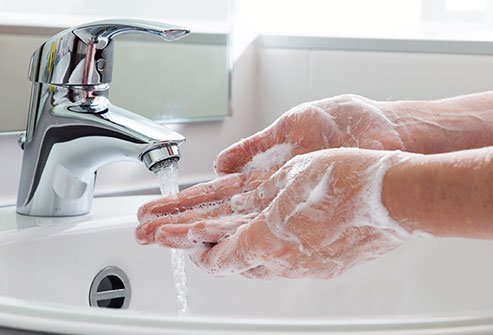Why Is Handwashing Important?

Handwashing is the first line of defense against the spread of diseases and illnesses, such as the flu and coronavirus (Covid-19). Several bacteria and viruses, which are present in everyday things and the air, cause infections that may lead to death. You may pick up such harmful germs through contact with your hands, so it is very important to wash your hands regularly.
Handwashing is by far one of the most effective strategies to protect oneself against illness and prevent the transfer of germs to others. Washing hands with soap and water may protect you, your family and everyone around you whether you're at home, at work, on the road or out in the community because it prevents the spread of disease-causing germs.
According to the Centers for Disease Control and Prevention, it is estimated that almost 2 million children die each year from infections that may be avoided by practicing proper hand hygiene.
Why and when it is recommended to wash your hands?
Dirty hands carry and spread germs from one place to another in the following ways:
- Touching contaminated surfaces transfer germs to your hands, and you may transfer germs to other clean areas.
- Covering your mouth while sneezing or coughing releases droplets with germs that transfer to your hands.
- Shaking hands with others who may have had contact with unclean surroundings transfers germs to your hands.
- Contact with contaminated food and water transfers germs, and touching clean food with dirty hands transfers the germs from your hands and contaminates the food.
- Coming in contact with germs while visiting the bathroom, changing diapers or taking out the garbage.
- Contact with the body fluids of a sick person or touching animals.
When dirty hands come in contact with the mouth, eyes or nose, the germs enter the body and cause infections. Handwashing removes germs and helps prevent diarrhea, respiratory illnesses and skin and eye problems.
Therefore, handwashing must be done compulsorily at times, including:
- Whenever your hands appear to be unclean or greasy
- Before, during and after preparing food
- Before and after you eat
- Before and after providing care for someone who has vomited or has diarrhea
- Before and after a cut or wound is treated
- After using the bathroom
- After cleaning house, toilets and gardening
- After changing diapers or washing a toilet-trained youngster
- After blowing your nose, coughing or sneezing because you tend to cover your mouth with your hand
- After coming in contact with an animal or animal excrement
- After handling pet food or treats
- After coming in contact with garbage
It is well noted that medical professionals and doctors have inculcated handwashing before and after examining people or performing any procedure to prevent the spread of germs from one to another person and to protect themselves from getting infected.
What is the procedure to follow while washing hands?
Handwashing is simple and affordable, taking less than 30 seconds at a time. It is the most beneficial 30 seconds you can invest in your own and other’s health.
Handwashing is best done with soap and water using the following steps:
- Run warm or cold water on your hands and wet them thoroughly.
- Apply sufficient soap, preferably antibacterial soap, and rub against your palms to produce lather.
- Spread the lather making sure to get it on the palms, back of your hands, between the fingers and all the way up to the forearm and elbows if necessary.
- Scrub thoroughly on the hands, wrist, between the fingers and tips for 20 seconds.
- Germs lurk under the fingernails, between the fingers and within the folds of the skin, so those areas must be washed.
- Hands should be rinsed under running water until the lather is cleared and your hands are free of soap.
- It is important to dry your hands with a clean towel or air dryer after washing.
Handwashing is best done with antibacterial soap and water, however, hand sanitizer can get rid of harmful germs in situations where water or soap is unavailable. Doctors recommend using alcohol-based hand sanitizers with at least 60 percent alcohol content to get the desired sterilization of the hands. Take a sufficient amount of sanitizer and rub all over the hands and fingers just like washing the hands until they get dry, which usually takes up to 20 seconds.
With all the benefits of regular hand hygiene, there is a downside to unnecessary handwashing. For example, frequent use of soap and water results in drying of the skin leading to:
- Formation of cracks on the skin.
- Increased dryness leads to itching, irritation and redness of the skin.
- The formed cracks increase the risk of skin and fungal infections.
To prevent skin dryness, it is mandatory to apply moisturizing lotion to the skin after handwashing. This will lock in moisture and prevent further drying of the skin.
